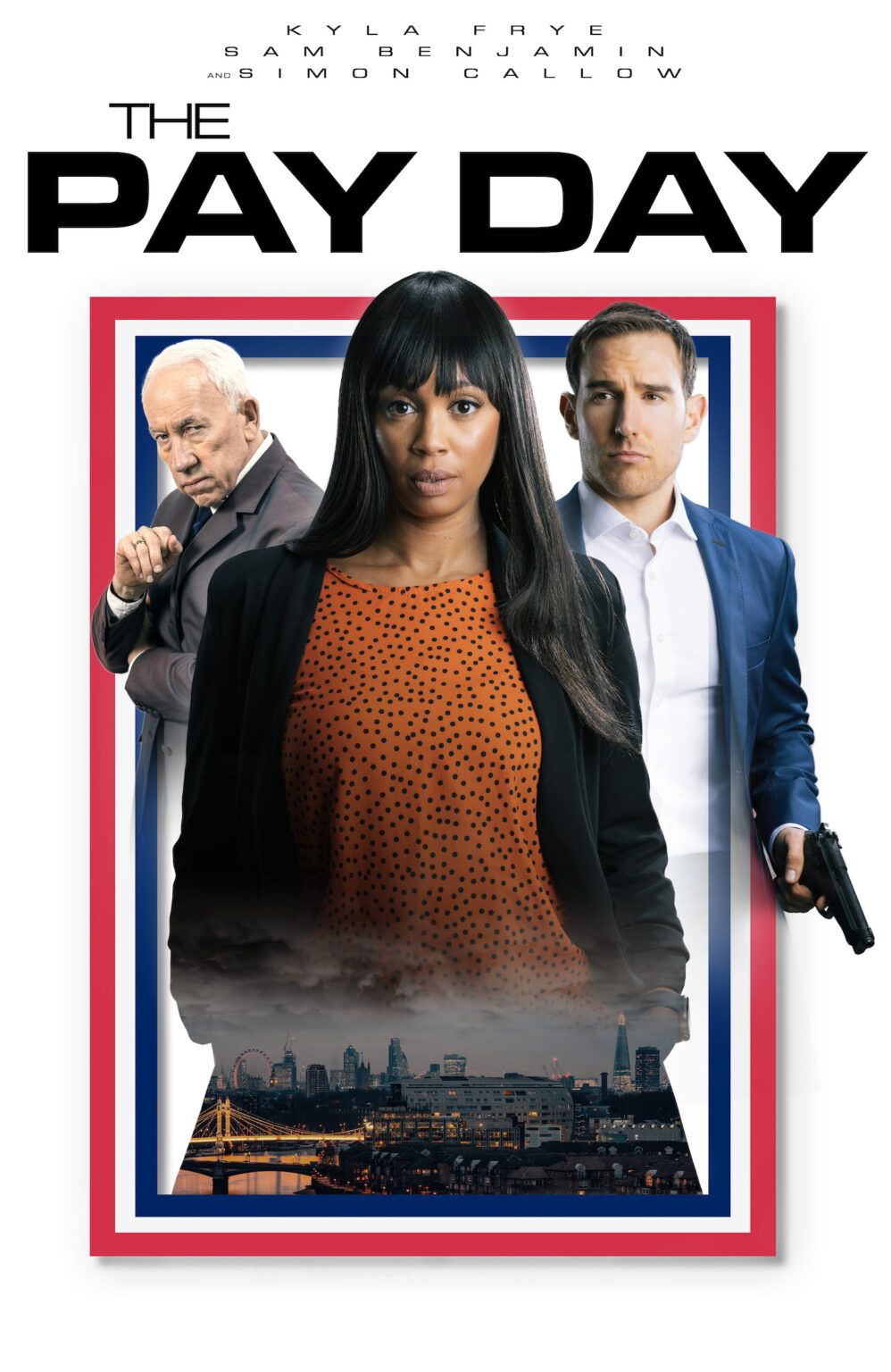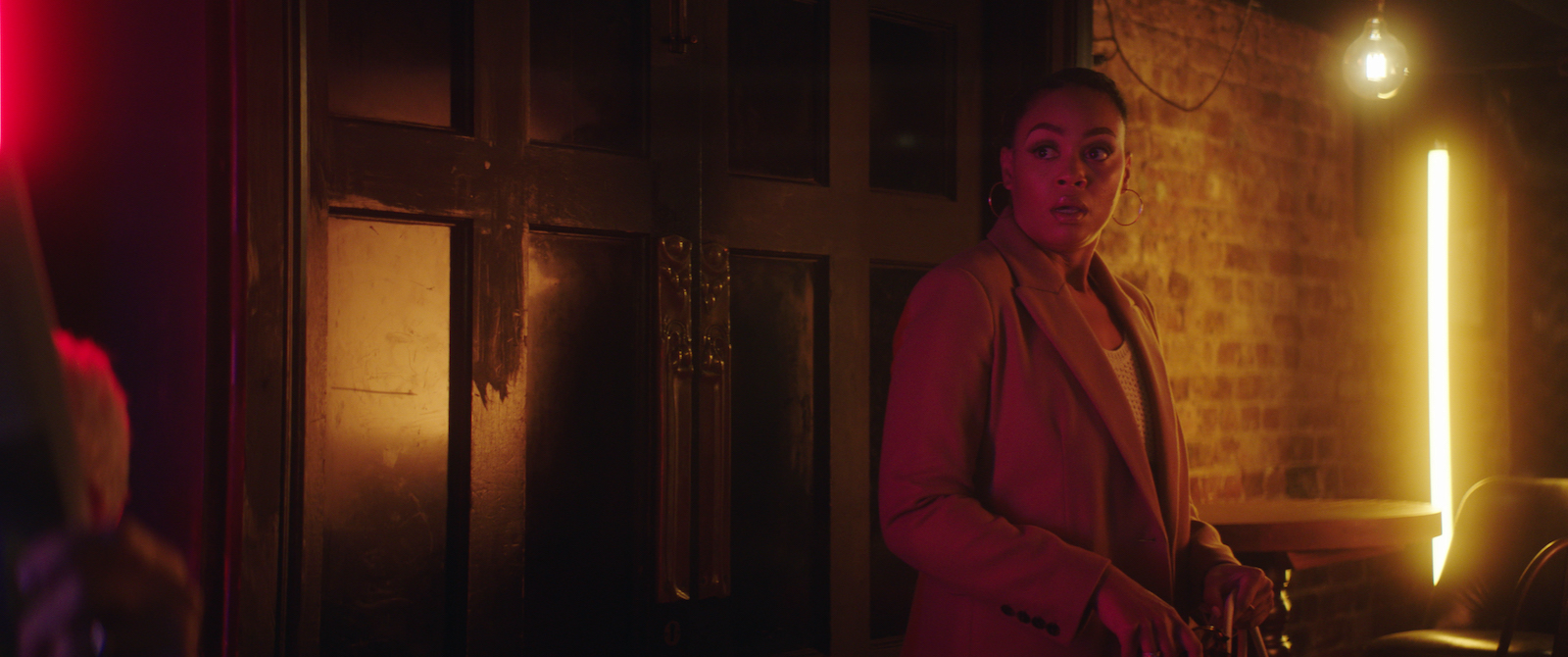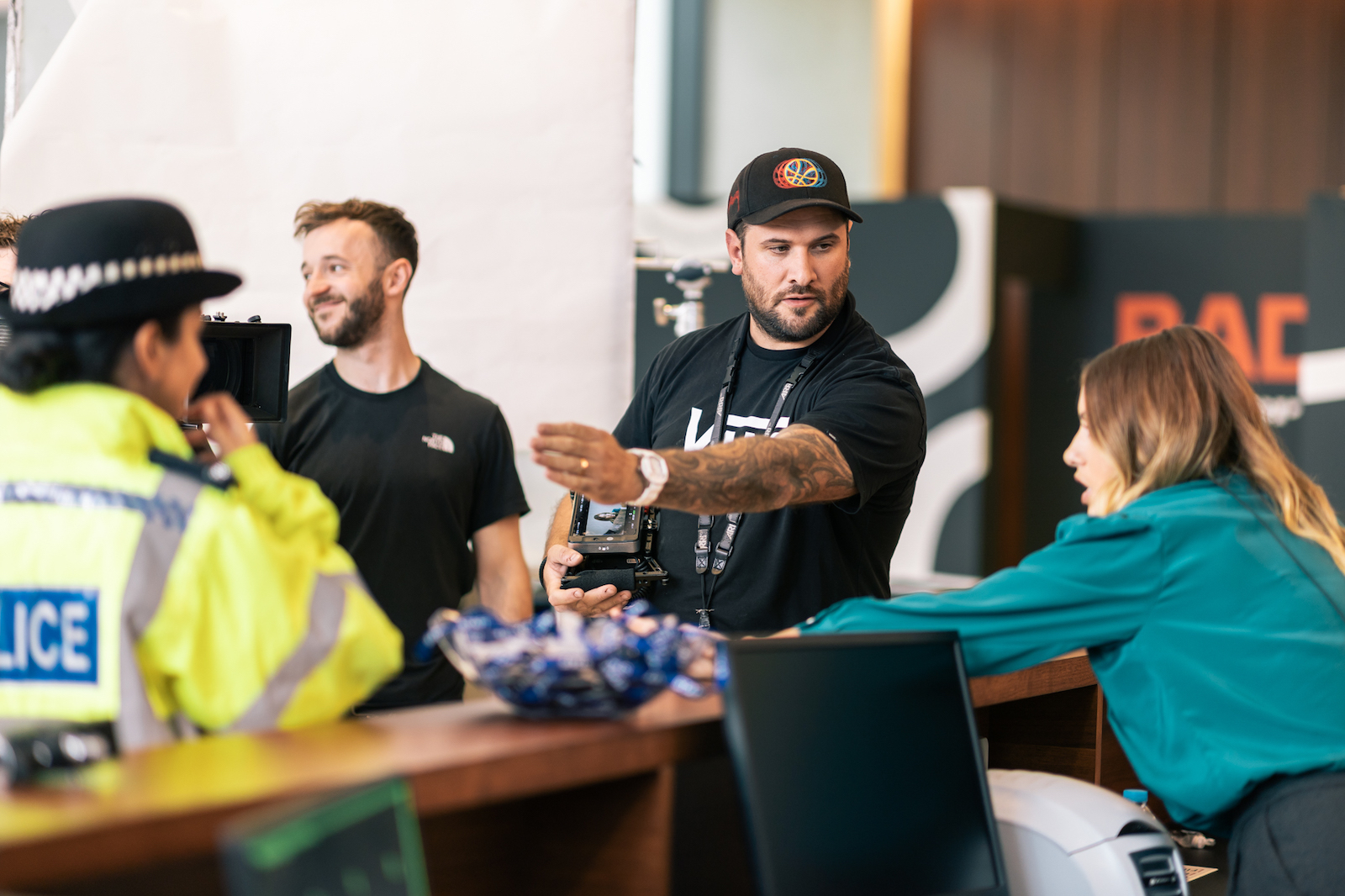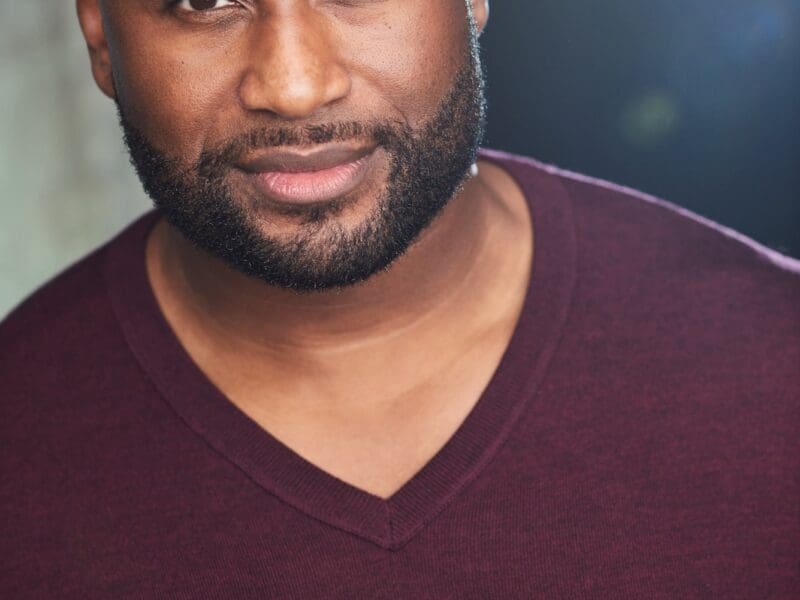
Q&A with ‘The Pay Day’ director Sam Bradford
Sam Bradford discovered his passion for movies at a young age through watching behind-the-scenes content on special edition DVDs like The Matrix. In our eyes, that can only be a good thing! Fueled by that obsession, they explored various roles in the film industry, including a stint in method acting, before finding their true calling in directing.
As a graduate of Greenwich University, he went on to work on various projects, including music videos, commercials, and eventually feature films, drawing inspiration from iconic filmmakers like Christopher Nolan, Zack Snyder, and the Farrelly Brothers.
His current project, The Pay Day, is a thrilling heist comedy inspired by Ocean’s Eleven with a unique blend of action, humor, and character chemistry that promises to captivate audiences from start to finish.
We were lucky enough to get a few moments with the talented filmmaker to get a look at how he feels about everything, as well as what he sees for himself in the future.

Tell us about your history as a filmmaker. How did you get started?
I was obsessed with the behind-the-scenes content you’d be treated to when buying special edition DVDs of blockbusters back when I was 13 or 14 years old. It was like the curtain had been lifted, and I could watch and learn how these films were put together.
I carried that passion with me throughout the rest of my school years, giving so much free time to making mini-movies with my friends that shared the same obsession. I guess it stopped being a hobby or interest by then, and it was clear to me what path I was going to head down for a career choice.
At first, I wasn’t sure if my love for movies came from being a performer, as I enjoyed acting in mini-movies with my friends.
I decided to try my hand at acting and enrolled in a method acting school with Brian Timoney in London. He’s a fantastic actor and a great teacher too, but it was here that I ultimately realized that I was drawn more to the art of direction and expressing my ideas about how stories would be shaped on film.
I needed to learn about what it would take to work behind the lens instead, and so eventually I graduated from Greenwich University with a diploma in Television and Film Production and started climbing the industry ladder with a job in London’s Soho district. It was exciting to be part of huge teams supporting the post production on Katy Perry music videos and features such as The Tournament and 28 Weeks Later.
Eventually, through luck, fate, or a bit of both – I found my career home in the shape of a production company called Praxima, and after a decade of working on all sorts of briefs from music videos to commercials as a director, our team has arrived at a point where we are now firmly standing in the feature film world, not just visiting, but confident to keep producing movies to hopefully entertain and engage with as many people as possible.

Who were your biggest influences growing up?
The Wachowskis just blew me away with The Matrix, and Christopher Nolan is up there as a big inspiration for me. I love Zack Snyder’s visionary style, and I have a real soft spot for the films of the Farrelly Bros too, Dumb and Dumber still being one of my all-time favorites.
Spielberg was very instrumental in those early years of what I would religiously watch again and again. I’ve always thought that my own style of directing and the type of films that I want to make can’t be placed into just one pigeon hole, so it’s here where you could draw a very faint parallel with Steven in that respect.
I’m not saying I’m a master at making movies, but he can so skillfully dip his toe into so many different genres and still bring the goods, and I’m just far too greedy to ever commit to staying and playing in just the one genre!
What was the inspiration behind your current film, The Pay Day?
I love heist movies, and I love comedies! The Pay Day seemed like this perfect blend of both and a natural next step after creating a short film called Double Cross, which featured the same lead actors as similar characters. We knew with the short that we could do character chemistry really well, and if we just went bigger with something like The Pay Day, we could explore how colorful London could be through this crime caper lens of ours.
The Pay Day is a heist thriller in the mold of several Hollywood classics. Did you have specific reference points in mind when you were making it?
Ocean’s Eleven. Another one of my favorites, but this was a huge reference for my team and me when making The Pay Day to the point where the soundtrack would be played between takes on set to keep us in that mindset of such a big inspiration for our team.
The effortless style and tone of that movie are what we measured ourselves against when making decisions over what certain characters would do in our movie or how the camera would move to make scenes more impactful.
I think ultimately we just drew from the confidence of that movie. It really is an inspiring watch because it’s just non-stop fun, super smart with its dialogue and scene setting and every character leaves a mark in some way.

You directed several music videos prior to features. Does your experience making music videos inform your visual style?
I think so. Music videos allow for that space to explore new opportunities and test yourself on what might make something more visually appealing or to see if you can tell a story that could easily be feature length but you’ve only got 4 minutes of song.
I’ve been very lucky to work on a variety of music vids where some are just performance pieces and use that as an opportunity to push the camera to its limits, trial new lenses or experiment with lighting. In other instances I’ve found myself writing and directing mini movies in gorgeous locations with some fantastic actors.
All of these experiences bleed into my feature work because you can forever be learning how to be better.
How does working on a commercial or a web series differ from directing a film?
I want to say scale but that isn’t necessarily true. Directing a film is, I think, much more of a burden for the individual to carry for far longer than when working on a commercial but the basics are still the same. You need to make sure you’re delivering the best version of yourself to the job.
Whether it’s a web series, commercial or film – as the director you are one of the main voices that lots of people will listen to and need to hear from to make it to the finish line.
Directing a film has asked more from me by comparison to a web series, both mentally and physically, because you have to tell a bigger story and with that you have more factors to manage for a greater period of time.
There’s lots of decisions on an indie that require the director’s input and of course it doesn’t just finish when they call wrap – the entire post production process demands presence from the director so you really are strapped in for the entire ride.
I feel personally that there’s more pressure in directing a film. Shorter form narratives such as commercials ask for a lot less time from your audience and in some cases you’ve sold what needs selling before the audience even realizes what they’re watching but with a film it’s different.
You’ve got to capture people’s interest in the first 2 to 3 minutes and then try and hold it for the duration, which is no easy task at any stage of the production process but a director’s mind almost needs to split into two with one half always thinking about that fact, during prep, during the first and final week of shooting, during the edit, grade and scoring sessions.

What was the most difficult part of production?
Battling the elements. A good chunk of The Pay Day takes place outside and Britain is notorious for its rainy and windy weather.
Our shoot block had to ride out thunderstorms on hill tops in London without any contingency left in budget for a return shoot day. It’s a scene on a park bench with this great view of London before our main characters and we had a tight window of just 3 hours to shoot that particular scene within. We blocked it through, set positions for lights and camera, sent our cast to hair and makeup and then the heavens just opened.
We were eventually gifted with an hour of blue skies before it turned to nightfall and managed to breeze through the scene but it was still a close call where you are powerless to change anything and have to think on your feet for solutions.
Another memorable challenge was shooting the elevator action scene. We had 3 identical elevators available for production to use and for some reason we had scheduled this to be last on our block within the main building location. One by one they started to break down throughout the day!
Each one became unresponsive to button prompts for doors control and once each elevator had “broken” it would kindly remind us with constant alarm sounds which of course isn’t ideal when shooting a movie!
Do you encourage improvisation between your actors or do you prefer sticking to the script?
I don’t ever make a plan to stick to script.
There’s a case to be made where sometimes actors won’t gel with a specific sentence or have something far better in their mind to embody the character they’ve spent months bringing to life. That doesn’t mean I throw the script out but I will happily welcome improvisation if it’s suited to the scene and the characters involved. A great example of this is one of the scenes involving Simon Callow’s character “Gates”.
He’s at a point in our movie where he’s very distressed and takes out his rage on a member of his waiting staff. Simon threw everything he had at the scene but something was missing and we both agreed with the writer that it now needed something more. A quick chat between takes and Simon hit the scene again and ran with adding one extra curse word in just the right place and it turned a great scene into the scene!
What is the main thing you want audiences to take away from The Pay Day?
I want them to enjoy themselves. Our movie doesn’t take itself too seriously and is there to entertain the audience. It’s about taking chances and not being afraid to fail, something we can all relate to and aspire to. I want audiences to settle in, laugh, and be charmed by our slice of London and the mix of characters we have them meet during their stay.
What would you say separates your production company, Praxima, from its peers?
I don’t think this separates us from peers because there are so many teams flying the flag for creativity and breaking the mold in new and exciting ways.
But Praxima is a team that always bats for the little guy, and we have ambitious ideas for many more features and crazy talent within our network that deserve to have their moment to shine on the larger stage. So we’re never doubting our own abilities or potential to stand shoulder to shoulder with Hollywood’s best.

What has been your greatest professional success?
It has to be seeing The Pay Day through from being just a talked-about idea to now being able to tell friends and family that our movie is available to watch on Starz and Amazon. As a director, I’m living the dream right now and realizing this is just the start of an exciting new chapter.
What about a professional failure? What did you learn?
There are always going to be moments where things don’t go according to plan, whether that be in a small way (crew cars breaking down between unit moves) or in a much more serious way (an actor becoming injured on set), but the learning curve is about realizing how prepared you need to be if these events ever happen.
Safety is always the number one priority, but so often it’s overlooked. I’ve learned through going through both of the examples above and so many more professional hiccups on my own projects that we’re still just doing a job and everybody has to go home safe, no matter what role they play.
Can you tell us about any upcoming projects?
I’m currently attached to a new feature in its writing stage that I hope to see off the ground before the end of the year as a writer/director. I’m developing a slate of projects at Praxima for other features and series concepts that we are speaking with co-producers about, and I have had a number of conversations with Kyla Frye and Sam Benjamin about The Pay Day 2.
What advice do you have for aspiring filmmakers?
It’s going to sound cliche, but just don’t stop. It’s so difficult to get anywhere in this industry, but equally it’s never been easier to showcase your talents online with nothing but a mobile phone as your A-Cam.
Talk to people, get yourself out there and don’t stop making noise, you are your own worst critic but also your best chance at getting to where you need to go. Read and digest as much about our industry as you can, become informed about the community you belong to.
What is your favorite film of all time?
At gunpoint, it’s still a toss up between Dumb and Dumber or Inception. So for me it’s either belly laughs from a crazy movie full of sweetly silly characters or a razor sharp, intelligent and exciting concept delivered through a visually breathtaking lens.
_
What types of films would you like Sam to take on next? Which actors do you believe are perfect to work with a director like Sam? Let us know in the comments!







